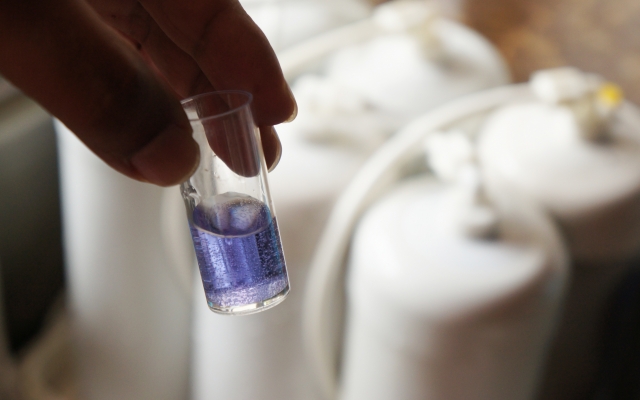
Researchers from UNSW Sydney have secured $2 million from the Australian Research Council (ARC) to begin ground-breaking work addressing environmental contamination caused by per- and poly-fluoroalkyl substances (PFAS), chemicals used in everyday commercial products including firefighting foams and pesticides.
Associate Professor Denis O’Carroll and a team from the UNSW School of Civil and Environmental Engineering were awarded $1.1 million to develop technology capable of cost efficiently treating large quantities of PFAS-contaminated water. Currently, most existing water treatment technologies are unable to remove PFAS to adequate levels, are prohibitively expensive or are only useful for a very limited lifespan. Professor Nasser Khalili, also from the UNSW School of Civil and Environmental Engineering, was awarded $900,000 with colleagues from UNSW Canberra, UNSW Medicine and Aviation, to develop techniques for extracting PFAS from soils as a liquid concentrate through the use of foam. These techniques could enable PFAS removal efficiencies of greater than 90%, providing entirely new methods for the aggressive removal of PFAS from contaminated sites.
PFAS are a class of chemicals that are fire-resistant and repel water, fat and other substances. They are used extensively in common household products like pizza boxes and popcorn bags, non-stick cookware, carpet and water-repellent clothing. But their resistant properties also make them difficult to eliminate from the environment; they do not dissolve in water, take decades to break down, are pervasive and spread easily. PFAS has been found in environments as remote as the Arctic Circle.
The grants are part of the $8.2 million awarded to nine research projects in the first round of ARC’s Special Research Initiative PFAS Remediation Research Program. Federal Education and Training Minister Simon Birmingham, Assistant Minister for Defence Marise Payne and Assistant Minister for the Environment Melissa Price announced the grants on Friday.
The Program aims to facilitate the development of innovative technologies to investigate and remediate PFAS-contaminated environments including soil, groundwater, waterways and marine systems. Up to $13 million is available to support a range of research projects.
Professor Mark Hoffman, Dean of Engineering at UNSW, said: “The technology our researchers are developing is potentially game-changing in terms of lowering the cost of remediation and its efficacy. This will lead to the clean-up of more PFAS-contaminated areas across the country, ensuring Australians have access to cleaner environments.”
